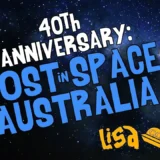Yesterday, a legend in the field passed away in his sleep. Harlan Ellison was 84 and his impact on the field can not be denied.
I first made his acquaintance through the short story A Boy and His Dog, published in Wollheim and Carr’s Worlds Best Science Fiction, 1970, a powerful annual collection including works by Spinrad, Le Guinn, Tiptree and Niven. For me, it was the stand out story.
Shortly thereafter, I was made aware that one of my favorite Star Trek episodes, The City on the Edge of Forever, was based on one of his scripts, and then, then I received my copy of Dangerous Visions via the Science Fiction Book Club. I ordered Again, Dangerous Visions, almost immediately.
Through the Forwards and Afterwords in both of those books, I felt that I’d gotten to know him, perhaps bettter than any other author I’d been reading. I was young, ten, eleven, twelve, during this initial acquaintance. I know I didn’t get or understand everything he was saying, but I also knew that I was reading someone who was genuine, straight-forward, someone who had something to say. It was through his writings on story that I learned there’d been something lacking in the SF I’d been reading, a human element that had been stifled by blue-noses and the American Puritan ethos; I learned, at least for science fiction, that there should be no subject beyond inquiry.
It’s a sad thing to review these literary encounters. Meeting that man in person and spending an hour and a half acting as his “bodyguard” during signings at a Worldcon remains a highlight of my fannish career (two angry, short, Jewish guys commenting on fans standing in a waiting line is a recipe for both potential disaster and fun); reading The Starcrossed and knowing that it chronicles, fairly closely, real life events. Reading about his antics and his lawsuits (and the benefits they brought to all writers), arguing with him over access to a Last Dangerous Visions story, knowing, from personal experience that much of his public persona was “schtick” (and well-played schtick), failing to obtain a short story for Amazing out of deference to his declining health*….
All of these are sad and sweet memories.
Despite all of the controversy surrounding him (I suppose that Harlan’s battle cry must have been something like, if you’re going to fight, you may as well do it flamboyantly), I think the measure of someone’s legacy ought to be the measure of whether or not they did more good than harm. Such a balance I believe finds Mr. Ellison tipping the scales positively. He took a stand for art and for authors and frequently won, and I think we’re all the better for that.
*Following our interview with Harlan, one of the last official interviews he ever gave, he informed us that while he was not writing new fiction anymore, he’d ‘make us a deal’ for a reprint; I immediately requested Jefty Is Five, a short story that won the Hugo Award for which I was privileged to hear Harlan’s acceptance speech. As we were preparing to finalize this deal, Harlan had his stroke and we felt that it was best to wait.
**Our Featured Image for this post is a crop from the Kelly Freas cover of the July 1977, Special Harlan Ellison issue of the Magazine of Fantasy and Science Fiction. The issue features Jefty is Five, two other Ellison short stories, an essay, a review of Ben Bova’s The Starcrossed (chronicling Ellison’s involvement with the ill-fated TV show The Starlost) and a cartoon by Gahan Wilson, fittingly titled “Gee, I don’t know; this is kind of depressing!”.
Steve Davidson is the publisher of Amazing Stories.
Steve has been a passionate fan of science fiction since the mid-60s, before he even knew what it was called.









Recent Comments